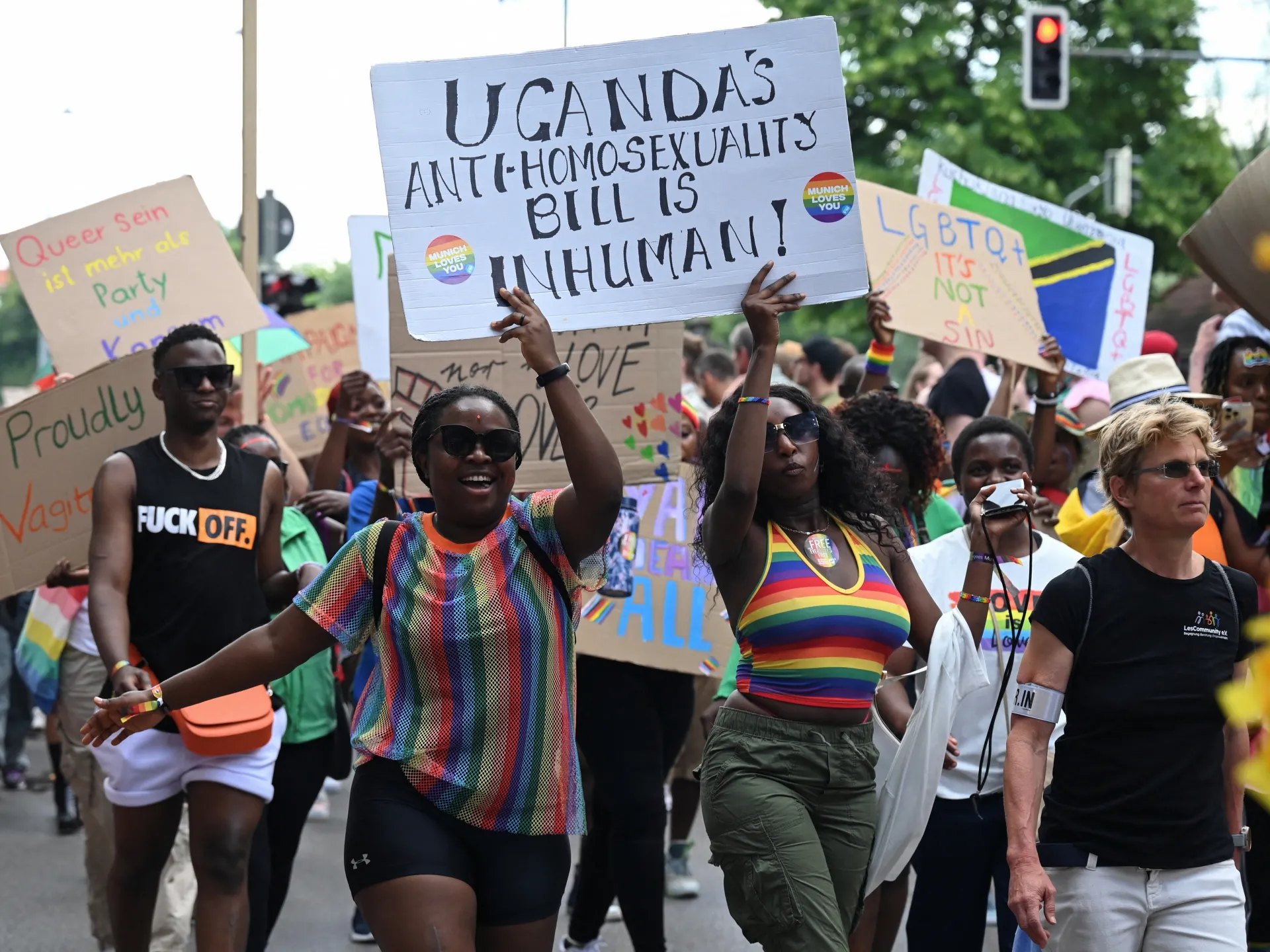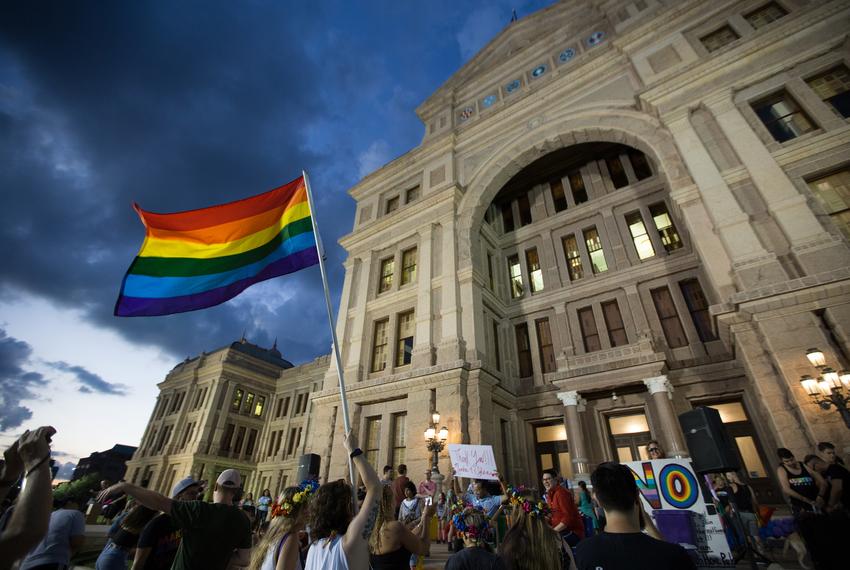Introduction: A Controversial Immigration Case
In June 2025, a case involving a 27-year-old Algerian individual, who cannot be named for legal reasons, sparked significant debate in the United Kingdom. This individual, convicted of multiple crimes including burglary, robbery, theft, assault, and a hate crime, successfully avoided deportation by claiming to be gay and transgender. The decision, backed by an upper immigration tribunal, rested on the argument that returning the individual to Algeria would expose them to persecution due to their sexual orientation and gender identity. This case highlights the complex interplay between criminal justice, immigration policy, and human rights protections in the UK, raising questions about the balance between public safety and individual rights.
This article explores the details of the case, situates it within the broader context of UK immigration law, and examines the cultural and historical factors surrounding the treatment of LGBTQ individuals in Algeria. It also delves into the legal frameworks that govern asylum and deportation, the societal attitudes that shape these decisions, and the broader implications for immigration policy in the UK and beyond.
Case Background: The Individual and Their Criminal History
Arrival and Asylum in the UK
The individual in question arrived in the UK and was granted asylum in 2013, receiving leave to remain for five years. The basis for this asylum claim was likely rooted in their claimed sexual orientation and gender identity, as Algeria is known for its harsh treatment of LGBTQ individuals. The asylum grant provided the individual with legal protection to reside in the UK, a decision that reflects the UK’s obligations under international human rights law, particularly the principle of non-refoulement, which prohibits returning individuals to countries where they face a real risk of persecution or harm.
However, over the next several years, the individual engaged in a series of criminal activities. Between 2013 and the early 2020s, they accumulated convictions for burglary, attempted burglary, threatening behavior, theft, assault, and a hate crime. These offenses culminated in a significant prison sentence of four years and three months, reflecting the seriousness of their actions. Despite this criminal record, the individual’s deportation was halted, prompting public and political scrutiny.
The Deportation Appeal
Facing deportation, the individual appealed to an upper immigration tribunal, arguing that their return to Algeria would expose them to persecution due to their identity as a gay and transgender person. The tribunal upheld the appeal, citing “credible evidence” of the individual’s sexual orientation and gender identity, as well as severe mental health issues that could not be adequately treated in Algeria. The judge’s decision was grounded in the UK’s obligations under the European Convention on Human Rights (ECHR), specifically Article 3, which prohibits torture and inhuman or degrading treatment, and Article 8, which protects the right to respect for private and family life.
“The tribunal found that as a gay man, who ‘was and is a transvestite and/or is transgender,’ he would face persecution if returned to Algeria.”
This ruling underscores the complexity of balancing criminal justice with human rights considerations. While the individual’s criminal history was extensive, the tribunal prioritized the risk of persecution in Algeria, highlighting the challenges of applying human rights law in cases involving foreign offenders.
Legal Framework: UK Immigration and Human Rights Law
The Principle of Non-Refoulement
The principle of non-refoulement is a cornerstone of international refugee law, enshrined in the 1951 Refugee Convention and its 1967 Protocol, to which the UK is a signatory. It prohibits states from returning refugees or asylum seekers to countries where they face a well-founded fear of persecution based on race, religion, nationality, membership of a particular social group, or political opinion. In this case, the individual’s claimed membership in the “particular social group” of LGBTQ individuals formed the basis for their asylum claim and subsequent protection from deportation.
In the UK, this principle is implemented through the Immigration Rules and the Human Rights Act 1998, which incorporates the ECHR into domestic law. Article 3 of the ECHR is particularly relevant, as it imposes an absolute prohibition on returning individuals to countries where they risk torture or inhuman treatment. The tribunal’s decision reflects this obligation, as Algeria’s treatment of LGBTQ individuals is well-documented as hostile and discriminatory.
Article 8 and the Right to Private and Family Life
Article 8 of the ECHR, which protects the right to respect for private and family life, has also played a significant role in UK immigration cases. While the primary basis for the individual’s appeal was the risk of persecution under Article 3, Article 8 has been invoked in similar cases to argue that deportation would disproportionately disrupt an individual’s established life in the UK. For example, in other cases reported by The Telegraph, foreign offenders have successfully halted deportation by citing family ties, such as involvement in raising children or maintaining relationships in the UK.
The use of Article 8 in immigration cases has been contentious, with critics arguing that it allows serious criminals to exploit human rights protections to remain in the UK. In response, the UK government has proposed reforms to raise the threshold for granting the right to remain under Article 8, aiming to prioritize public safety and reduce perceived abuses of the system.
UK Deportation Policy for Foreign Offenders
Under UK immigration law, foreign nationals convicted of serious crimes face automatic deportation proceedings. For sentences exceeding four years, as in this case, deportation is presumed unless there are “compelling” or “exceptional” circumstances. The individual’s successful appeal demonstrates how human rights considerations can override this presumption, particularly when the risk of persecution in the home country is deemed significant.
In recent years, the UK government has faced challenges in deporting foreign offenders, with less than 10% of expulsion orders resulting in actual deportations, according to data submitted to France’s parliament in a related context. This low success rate has fueled calls for stricter immigration controls and reforms to limit judicial discretion in human rights cases.
Cultural and Historical Context: LGBTQ Rights in Algeria
Legal Status of LGBTQ Individuals
Algeria’s legal and societal treatment of LGBTQ individuals provides critical context for understanding the tribunal’s decision. Homosexuality is illegal in Algeria under Article 338 of the Penal Code, which criminalizes “acts of homosexuality” with penalties of up to two years in prison and fines ranging from 500 to 2,000 Algerian dinars. Transgender individuals face additional challenges, as there is no legal recognition of gender identity changes on official documents, and societal attitudes often conflate transgender identities with homosexuality, leading to widespread discrimination.
In January 2023, the Algerian government launched a campaign against the LGBTQ rainbow symbol, with the Minister of Trade deeming it detrimental to the country’s religious and moral values. Over 38,000 items bearing rainbow colors, including school supplies and toys, were seized, reflecting the state’s active hostility toward LGBTQ visibility. This campaign underscores the systemic marginalization of LGBTQ individuals in Algeria, where even symbolic expressions of identity are suppressed.
Societal Attitudes and Violence
Societal attitudes in Algeria are deeply conservative, shaped by a combination of Islamic cultural norms and traditional gender expectations. LGBTQ individuals face significant stigma, often experiencing harassment, violence, and exclusion from family and community structures. Reports indicate that lesbian women are at risk of forced marriages and “corrective rape,” while gay men and transgender individuals may face physical assaults or public humiliation.
A notable incident in November 2022 involved a video circulating on social media showing men assaulting an individual perceived to be gay based on their gender expression. Such acts of violence, coupled with a lack of legal protections, create a hostile environment for LGBTQ individuals, supporting the tribunal’s finding that the individual would face persecution if returned to Algeria.
Historical Context: Algeria’s Post-Colonial Identity
Algeria’s treatment of LGBTQ individuals must be understood within its broader historical and cultural context. As a former French colony, Algeria gained independence in 1962 after a brutal war that left deep scars on its national identity. The post-independence government emphasized a return to Islamic values and Arab cultural heritage as a means of rejecting colonial influence. This emphasis has contributed to conservative social policies, including the criminalization of homosexuality, which was codified in the Penal Code during the colonial period but retained and enforced post-independence.
The Algerian state’s focus on national unity and moral conformity has often marginalized minority groups, including religious and sexual minorities. The lack of explicit legal protections for LGBTQ individuals reflects this broader trend, as the government prioritizes maintaining social cohesion over individual rights. This historical context reinforces the tribunal’s concern that returning an LGBTQ individual to Algeria would expose them to significant harm.
Broader Implications: Immigration, Crime, and Public Debate
Public and Political Reactions
The case has ignited public and political debate in the UK, with some expressing outrage at the decision to allow a convicted criminal to remain in the country. Posts on social media platforms have described the ruling as “disgusting” and an “absolute disgrace,” reflecting frustration with what some perceive as lenient immigration policies. These sentiments align with broader public concerns about crime and immigration, particularly in the context of high-profile cases involving foreign offenders.
Politicians, including Justice Secretary Shabana Mahmood, have responded by proposing changes to the way judges interpret the ECHR. These reforms aim to tighten the criteria for granting the right to remain, particularly under Articles 3 and 8, to prioritize public safety. The government’s push for stricter deportation policies reflects a broader trend toward hardening immigration controls in response to public pressure.
Similar Cases and Trends
This case is not an isolated incident. The Telegraph has reported on several instances where foreign offenders have avoided deportation by invoking human rights protections. For example, a Kurdish man avoided deportation by claiming that his tattoos, which deviated from Islamic principles, would expose him to persecution in Iraq. Similarly, an Iranian criminal successfully argued that deportation would disrupt his role in raising his child, including cutting his hair and playing with him.
These cases highlight a pattern in which human rights laws, particularly the ECHR, are used to challenge deportation orders. Critics argue that such rulings undermine public safety and erode trust in the immigration system, while supporters contend that they uphold the UK’s commitment to protecting vulnerable individuals from persecution.
International Comparisons
The UK’s experience is not unique. In France, a similar case involving an Algerian migrant who raped a child was halted when the French Supreme Court ruled that deportation would expose the individual to anti-trans discrimination in Algeria. This decision, reportedpics from October 2024, sparked controversy and parallels the UK case in its reliance on human rights arguments.
Across the Atlantic, the United States has faced similar challenges, with reports indicating that asylum seekers are sometimes rushed through screening processes to facilitate deportations. These international examples underscore the global tension between immigration enforcement and human rights obligations.
Critical Analysis: Balancing Rights and Responsibilities
The Challenge of Credibility
One of the central criticisms of this case is the question of credibility regarding the individual’s claimed sexual orientation and gender identity. Skeptics argue that such claims may be strategically made to exploit asylum protections, particularly in countries like Algeria where LGBTQ persecution is well-documented. However, immigration tribunals are tasked with assessing the credibility of such claims, often relying on evidence such as personal testimony, supporting documentation, or expert witnesses.
In this case, the tribunal found “credible evidence” of the individual’s identity, though the specifics of this evidence are not publicly available. The decision to grant anonymity further complicates public perception, as it limits transparency and fuels speculation about the legitimacy of the claim.
The Role of Mental Health
The tribunal’s consideration of the individual’s “severe” mental health issues adds another layer of complexity. The judge noted that these issues could not be adequately treated in Algeria, suggesting that mental health played a significant role in the decision. This raises broader questions about the intersection of mental health, criminal behavior, and immigration policy. Should mental health conditions mitigate the consequences of criminal actions, particularly in deportation cases? This question remains a point of contention in both legal and public spheres.
Reforming the System
The UK government’s proposed reforms to the ECHR interpretation aim to address these concerns by limiting judicial discretion and prioritizing public interest. However, such reforms risk undermining the UK’s international human rights obligations, potentially leading to legal challenges or reputational damage. Finding a balance between protecting vulnerable individuals and ensuring public safety remains a significant challenge for policymakers.
Conclusion: A Divisive Issue
The case of the Algerian individual who avoided deportation after claiming to be gay and transgender encapsulates the complexities of modern immigration policy. It highlights the tension between upholding human rights protections and addressing public safety concerns, particularly in cases involving serious criminal offenses. The tribunal’s decision, grounded in the risk of persecution in Algeria and the individual’s mental health needs, reflects the UK’s commitment to international refugee and human rights law. However, it has also fueled calls for reform, as public frustration grows over perceived leniency toward foreign offenders.
By examining the historical and cultural context of Algeria’s treatment of LGBTQ individuals, the legal frameworks governing UK immigration policy, and the broader societal debates, this case serves as a microcosm of the challenges facing liberal democracies. As the UK navigates these issues, the balance between compassion and accountability will continue to shape its immigration landscape.













0 Comments